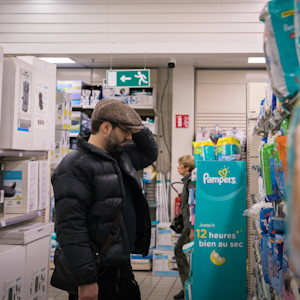When small business owners first start dreaming of success, the global growth trajectory they imagine often looks something like this:
- Delight the first wave of domestic customers
- Sustain success and gradually gather capital
- Invest capital in product innovation or property expansion
- Repeat Steps 2-3 until global demand emerges
- Identify the most attractive foreign market
- Execute a brilliant localization strategy
- Repeat Steps 5-6 until global domination ensues
Among those lucky enough to achieve that final goal, one of the most frequent revelations is the notion that their dreams were actually not optimistic enough. Today’s entrepreneurs are now entering a marketplace in which businesses can become global brands much sooner than many imagine.
Customers Are Rewriting Roadmaps
Customers have little interest in the business plan you wrote to secure startup funding or win executive approval. They don’t care if international shipping wasn’t on your agenda this year or if you never predicted their use case at all. If you have a compelling offer and an online presence, it’s only a matter of time before curious international customers come knocking. That's why localization is so important
In the case of home security innovator Canary, customers from 78 countries raised their hands during the first month of the company’s initial crowdfunding campaign. Most brands don’t have the decision made for them so soon, of course, but nearly 60% of U.S. small businesses currently claim customers from foreign markets.
To ensure your localization strategy doesn’t arrive too late to maximize results, keep a close eye on what website traffic reports, app download distributions, and eCommerce shipment addresses are telling you. Global demand could be hiding in plain sight.
Domestic Doesn’t Mean Monolingual
Speaking of capitalizing on existing audiences, have you looked at the linguistic patterns in your domestic market lately? You might be surprised by what you find.
Approximately 20% of U.S. citizens now speak a language other than English at home. In states like California, New Mexico, and Texas, that figure rises to between 35% and 45% of the local population. Of course, if you’re domestic headquarters is outside the U.S., this level of multilingualism is nothing new. In certain territories it may even be a government mandate.
Whatever the exact demographics of your host country, a domestic audience is often an ideal test group for your first foray into launching a localization strategy.
Your previously established brand recognition will allow you to work out the finer points of logistics like translation management in a relatively low-risk environment. And successful execution could further solidify customer loyalty.
Foreign Markets Can Solve Performance Plateaus
There has been a significant revival of entrepreneurial spirit in the years following the Great Recession. That collective optimism is currently contributing to market saturation in a number of sectors, though, particularly among those competing for attention in the technology space.
To break through the noise of domestic markets, and reverse the concerning slide of sales figures, more startups are finding the answers they seek abroad.
The sheer size of the addressable audience in markets like China, India, and Brazil make them attractive targets for any business eager to reboot their success through a clever localization strategy. Alternatively, hyper-connected consumers in smaller markets such as South Korea could be just as enticing.
If this top-down approach to market penetration sounds eerily similar to Step 5 of our original business owner’s daydream, it’s because it is. Regardless of what disruptive business model emerges next, successful global companies will always find time to study and serve the customers they seek.
Learn More About Localization
Explore our related resources below, or contact us today to start discussing a localization strategy that could cast your business onto the world’s stage.








